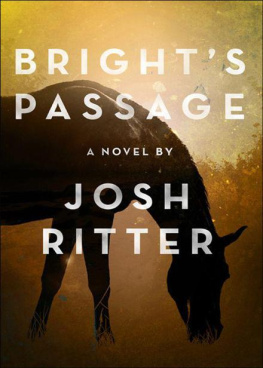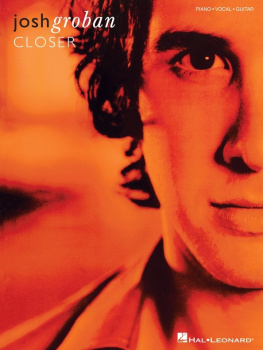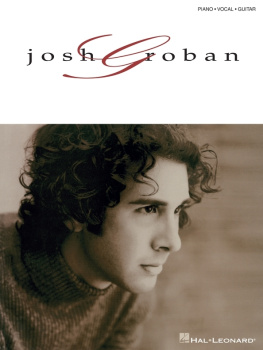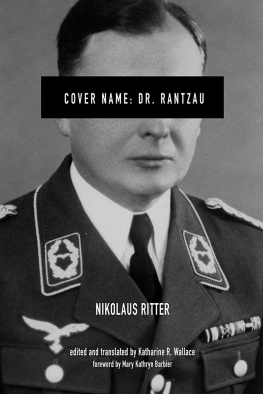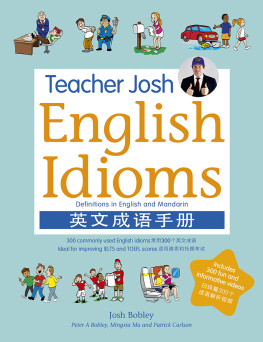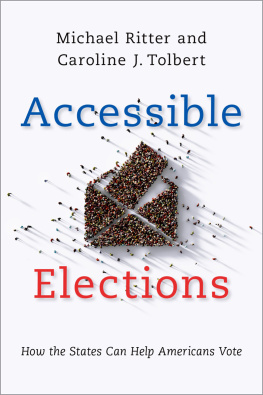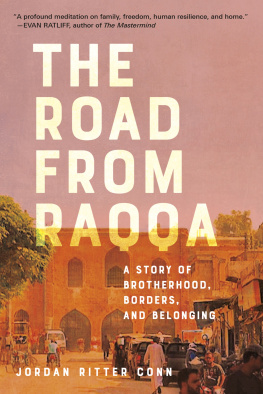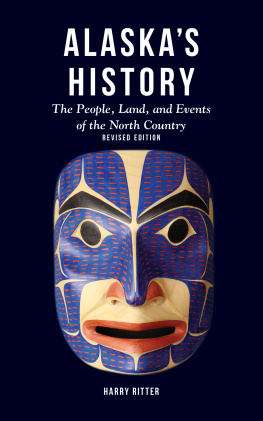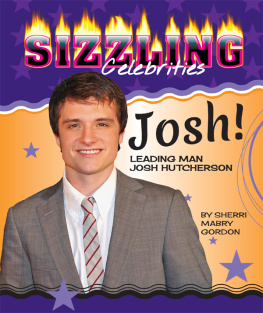Josh Ritter - Brights Passage
Here you can read online Josh Ritter - Brights Passage full text of the book (entire story) in english for free. Download pdf and epub, get meaning, cover and reviews about this ebook. year: 2011, publisher: The Dial Press, genre: Detective and thriller. Description of the work, (preface) as well as reviews are available. Best literature library LitArk.com created for fans of good reading and offers a wide selection of genres:
Romance novel
Science fiction
Adventure
Detective
Science
History
Home and family
Prose
Art
Politics
Computer
Non-fiction
Religion
Business
Children
Humor
Choose a favorite category and find really read worthwhile books. Enjoy immersion in the world of imagination, feel the emotions of the characters or learn something new for yourself, make an fascinating discovery.
- Book:Brights Passage
- Author:
- Publisher:The Dial Press
- Genre:
- Year:2011
- Rating:5 / 5
- Favourites:Add to favourites
- Your mark:
- 100
- 1
- 2
- 3
- 4
- 5
Brights Passage: summary, description and annotation
We offer to read an annotation, description, summary or preface (depends on what the author of the book "Brights Passage" wrote himself). If you haven't found the necessary information about the book — write in the comments, we will try to find it.
Brights Passage — read online for free the complete book (whole text) full work
Below is the text of the book, divided by pages. System saving the place of the last page read, allows you to conveniently read the book "Brights Passage" online for free, without having to search again every time where you left off. Put a bookmark, and you can go to the page where you finished reading at any time.
Font size:
Interval:
Bookmark:


Brights Passage is a work of fiction. Names, characters, places, and incidents are the products of the authors imagination or are used fictitiously. Any resemblance to actual events, locales, or persons, living or dead, is entirely coincidental.
Copyright 2011 by Josh Ritter
All rights reserved.
Published in the United States by The Dial Press,
an imprint of The Random House Publishing Group,
a division of Random House, Inc., New York.
D IAL P RESS is a registered trademark of Random House, Inc., and the colophon is a trademark of Random House, Inc.
LIBRARY OF CONGRESS CATALOGING-IN-PUBLICATION DATA
Ritter, Josh.
Brights passage: a novel/Josh Ritter.
p. cm.
eISBN: 978-0-679-60425-9
1. World War, 19141918VeteransWest VirginiaFiction.
2. Appalachian RegionSocial life and customsFiction. I. Title.
PS3618.1785B75 2011
813.6dc22 2010035308
www.dialpress.com
Jacket design: Matthew Fleming
v3.1
For Dawn
The baby boy wriggled in his arms, a warm, wet mass, softer than a goat and hairier than a rabbit kit. He held a blade over a candle flame for some time, then cut the cord and rubbed the baby with a wetted shirt. When this was done he laid the child in a basket near the fire and then stood at the head of the bed and looked down at his wifes face a long moment. Abruptly, he bent low and placed his head near her mouth, staying all the while stone silent, waiting for some whisper from her lips. At last he stood straight once more, seeming to disappear into the still blackness of the low rafters as if he had become just another of the cabins shadows. The child began to cry, and he turned to look at it lying there by the glow of the dying fire.
The man paced the floor, biting the large front knuckle of his fist. At length he picked the child up from its basket and lifted the flap of heavy hide over the doorway, stepping out into the last of the blue twilight as the rising sun began to gild the topmost trees along the crest of the ridge.
Although hed lived in its shadow almost his whole life, he stood there watching the sleeping leafy hulk closely as if for the first time. The forest was in the full trembling swell of high summer, the trees clamorous for sunlight, permitting only a few stray drops of gold to fall between their leaves and onto the scraggly undergrowth below. The ridge would offer nothing in the way of hindrance should men take it upon themselves to cross it. He again put his hand to his mouth and could be seen from the dark of the nearby chestnut tree to bite down hard on that knob-knuckled, much-abused fist. When the fit had passed he sat down cross-legged on the ground, his crying baby boy in his lap. The childs eyes were shut tightly, but its paw searched the air waveringly for something until the man put his finger down and the little hand grasped it, held it. The two waited there a while.
By and by the angel spoke from the darkness by the chestnut tree. Shes gone.
Course shes gone! What am I doing out here with the baby if she aint gone?
There was silence.
Yeah, he said after a while, his voice catching, shes gone.
Thats how it had to be.
You didnt tell me that she had to die, the man said accusingly. You said to do whatever you told me to do and youd keep us safe
The silence continued for so long that he knew the angel would not answer him, but he continued to sit there anyway, one arm holding the child close while the other arm worked a stick into the packed dirt. The child had red hair and cried and cried.
Nearby, a hutch held several hens clucking pointlessly at one another, and atop the hutch, white against the still-dark trees, stood the she-goat. Without his mothers rifle he had not been able to hunt that winter, and he had been forced to slaughter the goats kids, and finally the billy, one by one. Now the white little widow stood atop the hutch all day every day, coming down to the dirt only to forage or to be milked.
Even when his wife was hugely pregnant she had milked the she-goat to keep the milk flowing, but yesterday morning her water had broken before shed had the chance, and the ensuing afternoon and evening had been long and frightful. Now the goats udder was strained to bursting. He fetched the basket from the cabin, set it on a stump, and laid his son inside it. Then, kneeling by the stream, he washed his hands clean of blood and grime. He rose with much fatigue and made his way slowly across the bedraggled stretch of dirt to the hutch, lifted the goat down, and squeezed the milk into a bucket.
When the bottom of the bucket was covered with milk, he took it to the baby. Dipping his finger in the froth, he held it to the boys suckling mouth. He sat and fed the baby like this as the last of the dark was drawn away and the dawning sky was revealed, pink and leafed with clouds. When the baby was done eating it seemed to crumble in upon itself, and for a terrible moment he thought that the infant had died, until, by the movement of its tiny fingers, it became clear that the boy was only sleeping.
He went inside and pulled a small black lacquer box off the shelf and from this box removed an ivory comb, yellowed with age and impossibly delicate. The combs handle was carved in the shape of a kneeling woman, her hands folded in prayer. She wore a long gown with flowers on the fringe, and her hair was plaited into two flowing tresses on either side of her face beneath a tiny crown. It was ancient, this comb, having belonged to his mother and before that to a Queen of England.
He sat near the head of the bed and began to comb the tangles from his wifes hair. She had thrashed all night and the odor of stale sweat hung in the room, mixing with the plummy tang of blood. He spoke softly to her and touched her face often as he ran the comb through her hair, parting it at the scalp and arranging it on either side down her shoulders like the woman on the comb. Then he straightened her body in the bed, arranging her arms across her breasts so that her palms met in an attitude of prayer.
When this was done he took a dead black ember from the fire and, using a nail, mixed it with some of the goats milk in a tin cup. He pulled the Bible off the shelf, lifted the age-slackened cover of the heavy book, and, using the nail as a quill, beneath the names of long-dead others wrote:
Rachel Bright
19001920
Wife of Henry Bright
He lifted the nail from the page and surveyed the grisly black scrawl of the epitaph. Outside, the horse began to slap its tail against the trunk of the chestnut tree. He dipped the nail once more in the ink and added:
Mother to the Future King of Heaven
When this was done he held the Bible open on his knee and read the other names, but, except for his mother and fathers and his aunt Rebeccas, they were all strangers to him. As he read, his hand worried absently through the pages and pulled a thistle from between the leaves where it had marked, like new grass over a grave, some passage that had been special to his mother. He looked now for the page, but it was lost to him, and he threw the thistle to the coals.
He went to the cabin door and looked out on the child, then gazed up to the hills again, watching them closely. Nothing but the quantity of the light upon the canvassed green trees had changed. He retrieved the long-handled shovel that he had last used for mucking out the chicken hutch and walked beneath the dark spread of the chestnut tree to where his horse stood.
Font size:
Interval:
Bookmark:
Similar books «Brights Passage»
Look at similar books to Brights Passage. We have selected literature similar in name and meaning in the hope of providing readers with more options to find new, interesting, not yet read works.
Discussion, reviews of the book Brights Passage and just readers' own opinions. Leave your comments, write what you think about the work, its meaning or the main characters. Specify what exactly you liked and what you didn't like, and why you think so.

